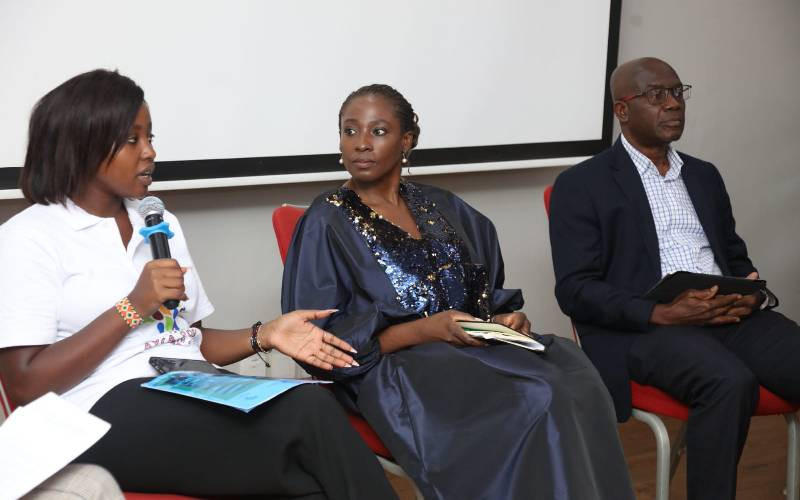Anita Soina, a Climate Justice Advocate, Serah Makka, ONE Africa Executive Director and Dr John Asafu-Adjaye, Senior fellow, Africa Centre for Economic Transformation during media briefing at the start of the Africa Climate Summit in Nairobi Kenya. [Courtesy]
